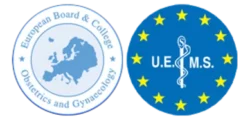What is the PACT?
Project for Achieving Consensus in Training
The Project for Achieving Consensus in Training (PACT) is a pan-European training curriculum aimed at achieving a higher level of quality training and ensuring optimal healthcare for women and their babies. It is developed by medical specialists and trainees from all across Europe that have worked together by sharing experiences and expertise.
Each year, more than 5 million women give birth in Europe. Maternal health remains a significant problem, as the WHO estimated 1,800 maternal deaths in Europe in 2015, with significant disparities across countries. These discrepancies are also a reality regarding other aspects of women’s health, such as menstrual pain, menopause, sexual problems and cancer.
The PACT is a recently established, harmonised pan-European training standard by the European Board and College of Obstetrics and Gynaecology (EBCOG) which enhances maternal health. Implementing the PACT across Europe will improve doctor skills and healthcare quality, ensuring modern, cost-effective care for all women and newborns in Europe, regardless of nationality or residence.
The PACT was funded by the European Union through the Erasmus+ programme and developed between 2015 and 2018, with Dr Fedde Scheele as the Project Chair. The PACT training curriculum describes the end terms of training for all gynaecologists in Europe, and provides a structure to design PACT training programmes on a local basis with guidelines for simulation training, entrustment, quality assessment and faculty development.
NEW IN 2025!
GESEA4EU was a project co-funded by the European Union, with the EU4HEALTH funding programme, Grant Agreement 101101180. This innovative cross-border project, which has defined universal training recommendations, brought together 16 partners from 8 European countries. GESEA4EU partners standardised the GESEA training offer already provided to surgeons in the existing 12 GESEA centres and expanded it to meet the training needs of other healthcare professionals including nurses and supporting non-clinical staff. GESEA4EU Project was led by ESGE and UEMS – EBCOG is a partner.
With the help of the GESEA4EU Project, EBCOG led a review and revision of the original PACT in 2025 to reflect the latest updates in education and training.
Benefits
Implementing the PACT and standardising post-graduate training across Europe will bring many benefits, including:
- Reduction in the variation of doctors skills and disparities in health care;
- Empowerment of patients thanks to patient-centred care and shared decision-making;
- A decline in unnecessary medical interventions;
- A rise in higher quality and cost-effective treatment;
- Enhanced mobility opportunities for obstetricians and gynaecologists across Europe;
- Doctors prepared for life-long learning to ensure their skills remain up-to-date throughout their careers.
